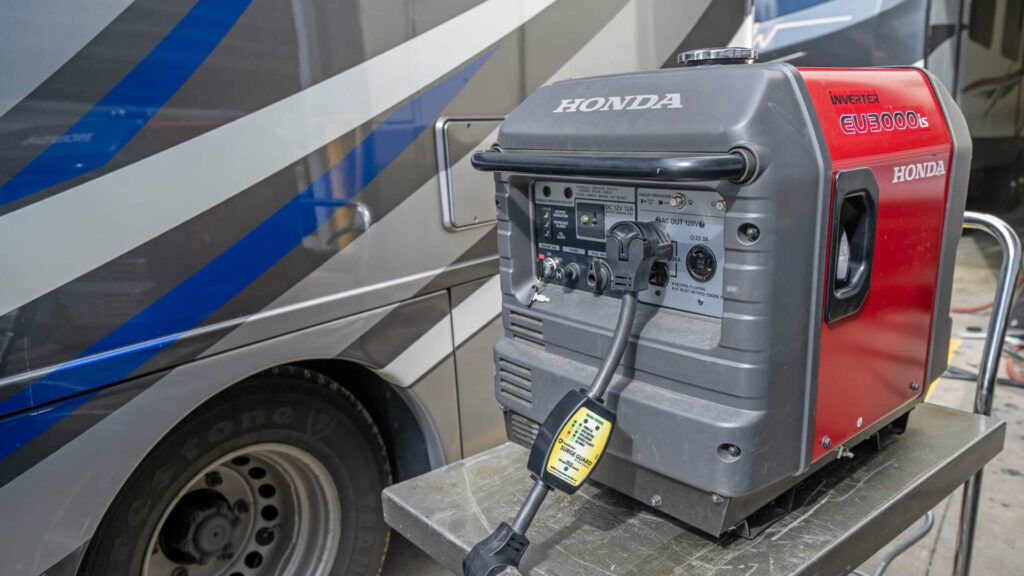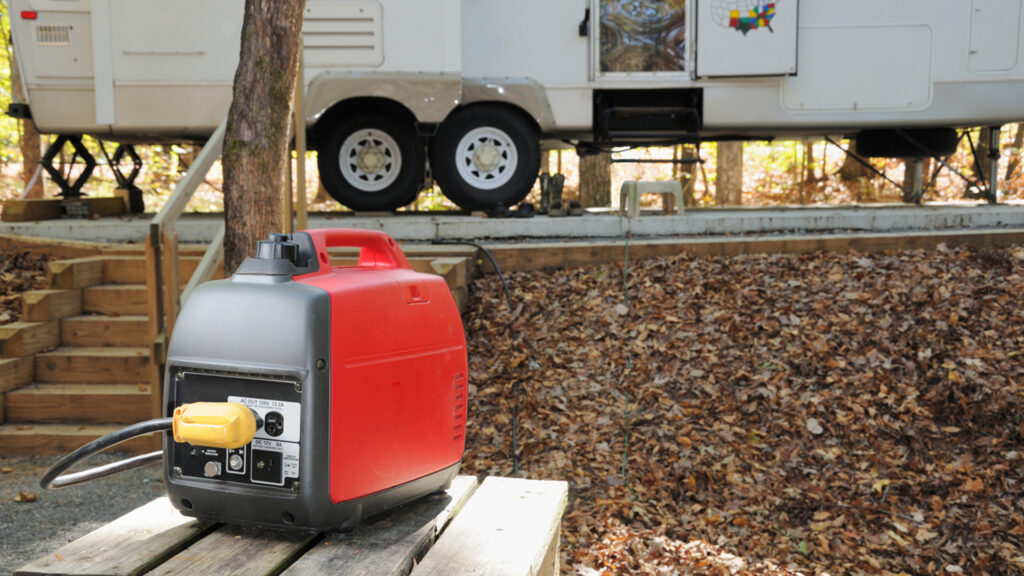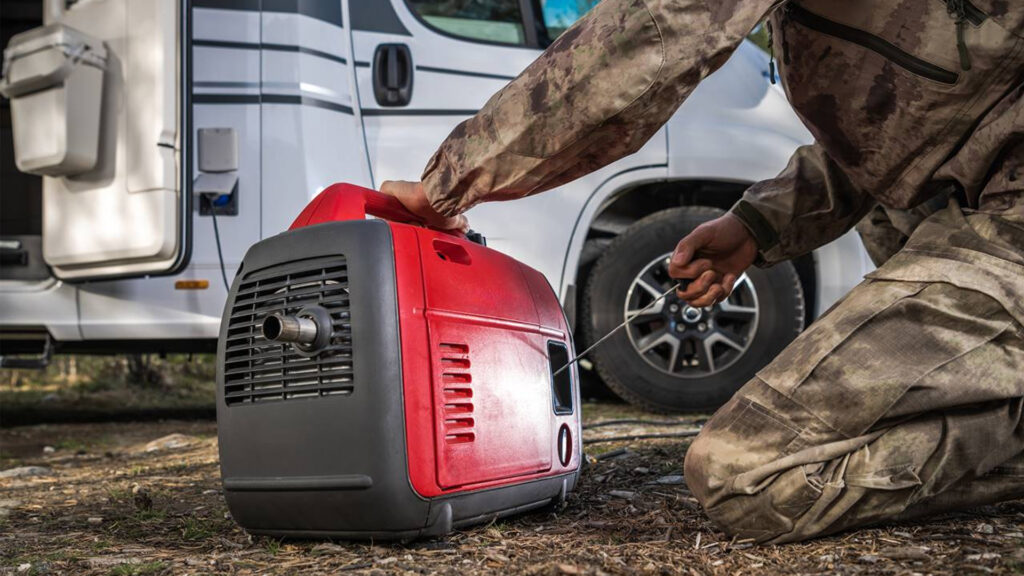Table of contents
- Understanding Your RV Generator
- Essential Maintenance Tools and Supplies
- Regular Maintenance Schedule for Gas Generators
- Diesel Generator Specific Maintenance
- Propane Generator Maintenance Considerations
- Seasonal Maintenance and Storage Preparation
- Troubleshooting Common Generator Issues
- When to Seek Professional Maintenance
- Reduce Generator Wear and Enjoy Uninterrupted Adventures
- Related Articles
For RV owners, the generator is a lifeline that ensures reliable power during camping trips, boondocking adventures, and remote stays. Without a well-maintained generator, your travel plans could be disrupted by power failures, costly repairs, or even a complete breakdown. Proper RV generator maintenance is crucial for maximizing performance, extending lifespan, and enhancing fuel efficiency. In this guide, we’ll walk you through the essential procedures on how to maintain a generator for your RV, including the ideal generator maintenance schedule. Whether you own a diesel, gasoline, or propane generator, understanding the maintenance of the generator will keep it running smoothly for years to come.
Understanding Your RV Generator
Before diving into the specifics of generator maintenance, it’s important to understand the types of RV generators available and their specific needs. There are three main fuel types: diesel, gasoline, and propane. Each requires slightly different care and attention.
Diesel Generators
Diesel generators are known for their longevity and fuel efficiency, making them a popular choice for larger RVs. They typically offer more power, which is essential for bigger rigs or RVs with heavy electrical demands. Maintenance of diesel generators includes regular checks on the cooling system, fuel system, and exhaust.
Gasoline Generators
Gasoline generators are more common and offer good power for small to medium-sized RVs. While they’re often more affordable upfront, they may require more frequent maintenance. These generators need regular oil changes, air filter replacements, and fuel system maintenance.
Propane Generators
Propane generators are cleaner and quieter than gasoline or diesel models, but they have unique maintenance needs, such as checking fuel lines for leaks and ensuring the fuel delivery system is in good condition.
Importance of the Hour Meter
Regardless of the fuel type, knowing your generator’s specifications and following the manufacturer’s maintenance guidelines is critical. The hour meter is an essential tool for tracking maintenance intervals. By knowing how many hours your generator has been running, you can follow the generator maintenance schedule specific to your model.
Essential Maintenance Tools and Supplies

Performing generator maintenance requires the right tools and supplies. Below are the basic tools needed for routine maintenance:
- Oil filter wrenches: These are necessary for removing and replacing oil filters.
- Oil drain pans: Used to safely dispose of used oil.
- Spark plugs: Replace these periodically to ensure optimal performance.
- Fuel filters: Necessary for clean fuel delivery.
- Air filters: Helps keep dirt and debris out of the engine.
- Cleaning supplies: These ensure your generator stays clean and free from dirt buildup that could affect performance.
It’s essential to use replacement parts designed for your specific generator model to ensure compatibility and safety.
Regular Maintenance Schedule for Gas Generators
Gasoline generators have a detailed maintenance schedule that should be adhered to for optimal performance. Below is a breakdown of the tasks by frequency:
Monthly Maintenance Tasks
Perform these checks every month or every 25-50 operating hours:
- Battery connections: Ensure the battery is securely connected and free of corrosion.
- Oil levels: Check oil levels and top off as needed to prevent engine damage.
- Exercise the generator: Run the generator under load for at least 30 minutes. This helps prevent fuel system issues, lubricates the internal components, and ensures the generator is ready for use when needed.
Quarterly Maintenance Tasks
Every three months or after 50-100 hours of operation, perform the following:
- Check for loose connections: Inspect the electrical and fuel connections for any wear or damage.
- Inspect fuel lines: Ensure there are no cracks or leaks in the fuel lines.
- Clean the exterior: Use a damp cloth to clean the generator’s outer parts, including vents and filters.
Annual or 150-Hour Maintenance
At least once a year or every 150 hours, you should perform the following more intensive maintenance tasks:
- Change the oil and oil filter: This is crucial for engine longevity.
- Replace air filters: A clean air filter ensures optimal engine performance.
- Inspect all components: Look for signs of wear and tear on hoses, belts, and other components.
450-500 Hour Maintenance
After 450-500 hours of operation, perform these important tasks:
- Replace spark plugs: Worn spark plugs can cause poor performance or difficulty starting.
- Change fuel filter: A clean fuel filter ensures the engine is receiving proper fuel flow.
- Check the generator’s output: Test the output voltage and frequency to ensure the generator is providing the correct power.
Diesel Generator Specific Maintenance

Diesel generators require some specific generator maintenance procedures to keep them running efficiently. The following tasks are essential for diesel-powered RV generators:
Cooling System Maintenance
The cooling system in a diesel generator plays a vital role in regulating the engine temperature. Check the coolant level regularly, and flush the system every 1000 hours or five years. Be sure to use the correct coolant recommended by the manufacturer.
Fuel System Care
Diesel engines are more sensitive to water in the fuel system. Drain water from the fuel system every 100 hours to prevent corrosion and damage. Additionally, replace the fuel filter as necessary to maintain clean fuel flow.
Other Diesel-Specific Tasks
Other maintenance tasks include:
- Glow plugs: Inspect and replace glow plugs as needed.
- Exhaust system: Check for condensation buildup in the exhaust system, which could lead to rust or blockages.
Propane Generator Maintenance Considerations
Propane generators have unique maintenance needs, primarily focused on the fuel delivery system and connections. Propane is a clean-burning fuel, but issues can arise if the lines or connections are compromised. Perform the following:
- Inspect propane lines: Look for leaks and cracks, especially in older lines.
- Check regulators and connections: Ensure they’re secure and free of corrosion.
Seasonal Maintenance and Storage Preparation
When preparing for long-term storage or seasonal use, taking the right steps will ensure your generator remains in top condition:
- Fuel stabilization: Add fuel stabilizer to the tank if you plan to store the generator for more than 30 days.
- Proper storage: Store the generator in a cool, dry place to prevent rust and corrosion. Disconnect the battery to avoid drainage.
- Pre-season checks: Before using the generator again after storage, perform the necessary checks like oil levels, spark plugs, and fuel system.
Troubleshooting Common Generator Issues
Even with regular generator maintenance, issues may arise. Here are some common problems and their potential solutions:
Failure to Start
If your generator fails to start, it may be due to a dead battery, faulty spark plugs, or an empty fuel tank. Check the fuel level and replace the battery if necessary.
Power Fluctuations
If the power output is unstable, the issue may be a clogged air filter, faulty voltage regulator, or a problem with the alternator. Inspect these components for damage.
Unusual Noises
Strange noises could indicate an issue with the engine’s internal parts, such as a loose component or a lack of lubrication. Tighten any loose parts and ensure the generator has enough oil.
Excessive Smoke
If your generator is emitting excessive smoke, it may be overfilled with oil, or there could be a serious internal problem. Drain any excess oil and monitor the performance.
When to Seek Professional Maintenance
While many maintenance tasks are DIY-friendly, some jobs should be left to professionals. If you encounter issues that require disassembly, complex repairs, or electrical work, it’s time to consult a qualified technician. It’s also a good idea to schedule an annual professional service check, which typically includes:
- Thorough inspection of all parts
- Oil and fuel system checks
- Testing the output of the generator
RV generator maintenance is an essential part of keeping your RV in top shape for your adventures. By following a regular generator maintenance schedule, performing essential tasks like oil changes and filter replacements, and addressing issues promptly, you can avoid costly repairs and enjoy reliable power wherever your RV takes you. Whether you own a gasoline, diesel, or propane generator, proper maintenance of the generator is key to ensuring a smooth and enjoyable RV experience.
Reduce Generator Wear and Enjoy Uninterrupted Adventures
Planning frequent travels and looking to reduce your generator usage? Stay at Black Hawk Creek RV Park & Cabins, where you’ll enjoy full hookups and worry-free stays. With breathtaking views of South Dakota’s iconic attractions just minutes away, you’ll have everything you need for a memorable adventure. Book your spot today and explore the Badlands, Mount Rushmore, and Rapid City while minimizing the need for your RV generator!

